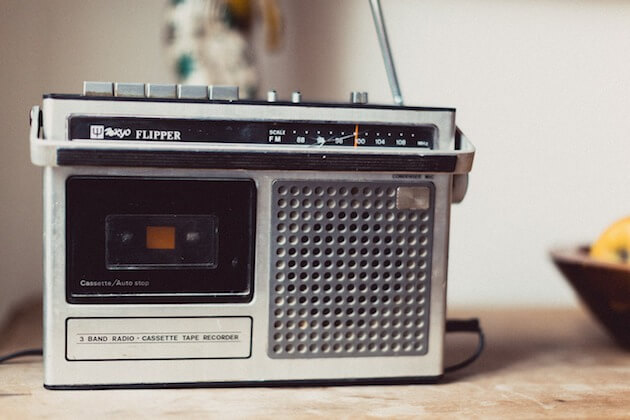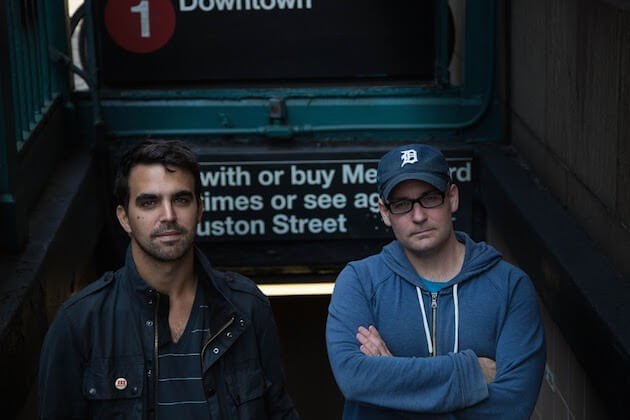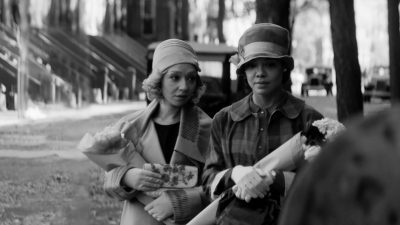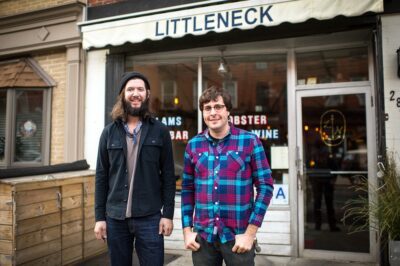‘The Best Storytellers Under One Roof’ At The First-Ever Tape Festival
Like many people, award-winning radio documentarian Mooj Zadie became fascinated with public radio while listening to WBEZ’s This American Life when he was in college. “I loved the intimacy. I loved hearing people’s voices… the fact that it allowed you to travel without leaving your bedroom, that it made you sympathize and put you in someone else’s shoes.” He would wind up pursing a career in radio and, cutting his teeth on programs WNYC’s Studio 360, 99% Invisible, and Love + Radio, among others. In 2014, he began producing a podcast of his own called Tape, “a radio show about people who make radio.”
Now, Zadie is making a radio festival about people who make radio. On July 26, the Bell House will host the first-ever Tape Festival, “a unique one-night event of storytelling and creative live performances.” The night will feature animation, live theatre, music and singing, and boasts some of the biggest names in public radio. Zadie aims to produce a festival for radio in the way that other mediums like film, music and comics have festivals. Despite the growing popularity of podcasts and radio shows, there are very few social-gatherings that bring the community of radio enthusiasts together in the physical sense.
“Radio is so intimate, and especially with podcasts because it’s literally in your ear,” Zadie explains. “You have this relationship with [radio hosts]… you get to know these people and come to see them as your friends, but there’s no outlet for you to go and attend a live event generally speaking.”
With Tape Festival, Zadie hopes to fill that void, bringing the medium to another dimension altogether. “My goal is to bring the best people in radio and podcasts … The best storytellers in the audio format under one roof,” he says. For this year’s event he’s done just that, lining up performances by David Kestenbaum & Jacob Goldstein of NPR’s Planet Money, Sharon Mashihi collaborating with Kaitlin Prest of The Heart, PJ Vogt and Alex Goldman of Reply All, and Nate DiMeo of The Memory Palace amongst others. Attendees can expect to hear a wide variety of stories told in a number of styles, touching on subjects such as body and gender identity, familial language barriers, light bulbs, pigeons and more.
Tape Festival comes on the scene at an important time for both radio and audio-based story telling. Although public radio has been around for nearly a century, the landscape has begun to shift drastically in recent years. The birth of the podcast and on demand listening have significantly altered the way that people consume the medium and made it easier to keep up with the shows they choose to follow.
“It has a lot to do with the fact that we have these devices, mainly iPhones, where you can download an app,” Zadie explains. “Accessing on demand radio was never possible, something aired once then it was gone. Now you can go back and re-listen to these shows that you love. If you miss something you can rewind. I don’t even own a radio. Most people don’t own radios. ”
Despite not owning a radio, Zadie manages to keep up with about 20 different podcasts and radio shows at any given time. That’s works out to be around five or six hours a week, no more time than what he estimates to be the time spent by the average podcast listener.
Today there are more options for listeners than ever before, with the number of actively hosted podcasts continuing to grow at an exponential rates. According to Planet Money co-host David Kestenbaum, this increase in numbers has a lot to do with changes in production technology and an increased accessibility to audio-editing software. “From an economic perspective when something new gets invented, you see a lot of experimentation,” he explains. “Especially when you see what they call a ‘lower barrier to entry.’ Anybody can sort of do it. That didn’t used to be the case. When I came to NPR people were still editing tape with razor blades and reel to reel machines, you couldn’t do your own. Before [radio producers] had to be really directed or someone had to go find them and try and hire them, at the local radio station or something. And here they can just try it. It’s great.”
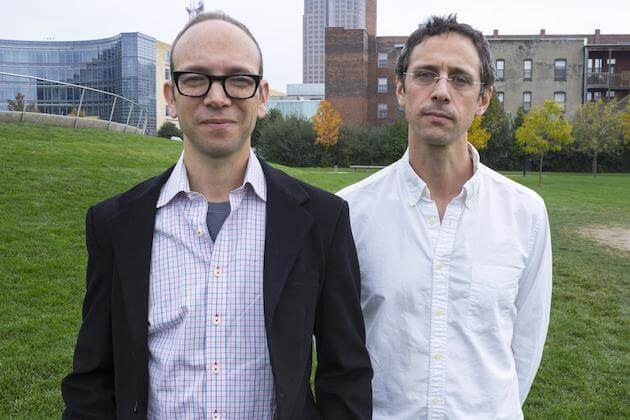

David Kestenbaum and Jacob Goldstein of NPR’s Planet Money. Photo courtesy of John Pemble/Iowa Public Radio.
With its rise in popularity, Zadie sees a growing demand for radio-related gatherings that will push this traditionally solitary activity further into the social arena. “I think you’re going to see more and more live radio events,” he says. “You’ve already seen it with WNYC’s RadioLoveFest and with this live event called Cast Party that’s happening the day after Tape Festival. I think it will be heading more and more in that direction. I think the podcast gave people an outlet to confess their love of the medium. It brought a younger more devote generation into the fold.”
Tape Festival takes place Sunday, July 26 at the Bell House in Brooklyn. Tickets are sold out for the early showing, but are still available for the 9:30 p.m. time slot. They are sold on a sliding scale of $25 to $45 and are available online at tapefest.org.
You might also like 









